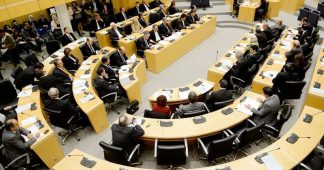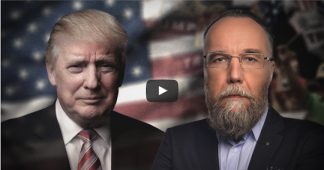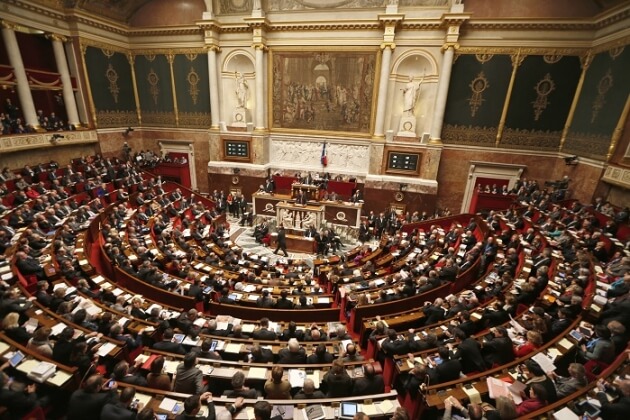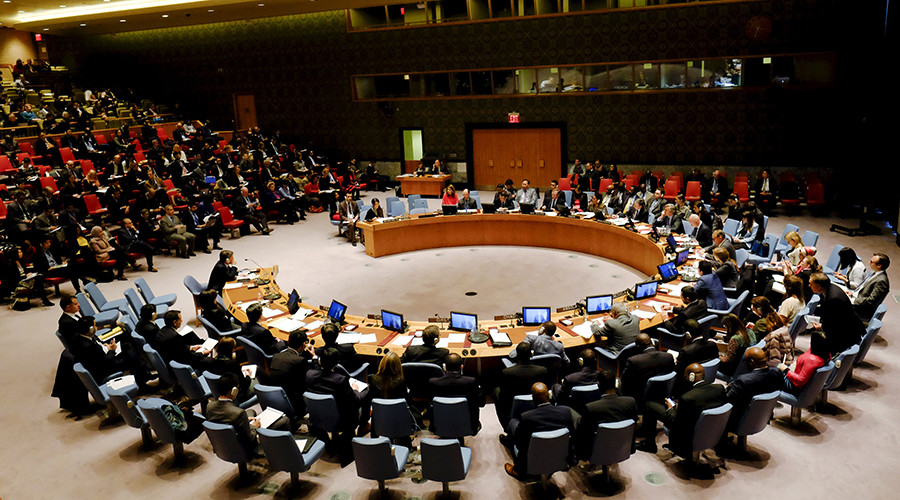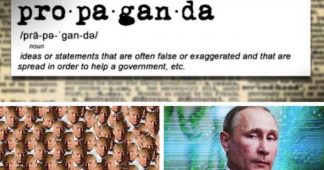By Julie Hyland
In the aftermath of the November 8 US presidential election, sections of the Democratic Party, the intelligence services and the media have intensified unsubstantiated pre-election claims that the Russian government hacked into Democratic Party email servers to undermine the campaign of Hillary Clinton.
The immediate purpose was to distract from the content of the leaked emails, which exposed a conspiracy by the Clinton campaign and the Democratic National Committee to undermine her challenger in the primaries, Bernie Sanders.
With Trump’s victory, it has become the focus for a ferocious struggle within the ruling elite over foreign policy centred on the issue of what order the US should first aggressively escalate its diplomatic, economic and military offensive—against Russia or China. More fundamentally, its aim is to brand anyone raising questions about foreign policy as the “dupe” of a foreign power and to justify further sweeping censorship, above all against social media.
The same applies to the manufacturing of the fake news scandal in Europe. The divisions within the US over foreign policy are mirrored within and between national ruling elites across the continent. What all agree on, however, is that, whatever side eventually wins out, the agenda of militarism and war requires police-state methods.
This is the content of the resolution passed by the European Parliament on November 23, on “EU strategic communication to counteract propaganda against it by third parties.” The declared aim of the extensive resolution is to combat “third-party actors aiming to discredit” the European Union (EU) that “do not share the same [European] values.”
The resolution then defines as the main “actors” Russia and Daesh (or ISIL) and it is Russia that occupies most of the resolution.
It equates Russia with “transnational terrorist and criminal organisations…” that have “repeatedly engaged in a strategy of deliberate deception and disinformation, especially in the ‘new media’, social networks and the digital sphere…”
Accusing Russia of “information warfare”, the resolution asserts that it “is employing a wide range of tools and instruments” to “challenge democratic values, divide Europe, gather domestic support and create the perception of failed states in the EU’s eastern neighbourhood…”
The resolution specifically cites think tanks such as Russkiy Mir, the RT channel, Sputnik, alongside “internet trolls” and “cross-border social and religious groups…”
No evidence is presented to back up these claims. Nor is the content of the “disinformation” that it alleges ever specified. Rather “information warfare” is presented as any reportage, regardless of whether it is true or false, that undermines the interests of the European bourgeoisie.
While “not all criticism of the EU or its policies necessarily constitutes propaganda or disinformation”, the resolution states, “instances of manipulation or support linked to third countries and intended to fuel or exacerbate this criticism provide grounds to question the reliability of these messages…”
It is on the basis of such spurious equations that Julian Assange of WikiLeaks and Edward Snowden have been forced into hiding and exile, accused of treason and threatened with imprisonment and worse.
Just as sinisterly, the EU resolution decrees “information warfare” to be an undeclared act of war. Such methods form an “integral part of modern hybrid warfare, which is a combination of military and non-military measures of a covert and overt nature, deployed to destabilise the political, economic and social situation of a country under attack, without a formal declaration of war,” the resolution states, “targeting not only partners of the EU, but also the EU itself, its institutions and all Member States and citizens irrespective of their nationality and religion…”
The claim that Russia is engaged in a de facto war against the EU stands reality on its head. There is no doubt that Moscow engages in propaganda against aspects of EU policy, but its actions are only a pale reflection of the unending campaign conducted by the US and the EU over the last period.
Washington, in particular, serves as the largest manufacturer of fake news in the world, as evidenced by the criminal lying claims that Iraq had “weapons of mass destruction” to justify pre-emptive war in 2003. But not far behind it are the major European powers, who are supporting US disinformation regarding the Syrian civil war, which they helped to ignite, with the same aim.
The “fake news” scandal is part of active and far-advanced efforts, led by the US, to destabilise Russia and encircle it militarily. It was US Assistant Secretary of State for European and Eurasian Affairs Victoria Nuland who admitted, in 2014, that Washington had spent $5 billion to secure regime change in Ukraine, just after the so-called Euromaidan protests succeeded in forcing the pro-Russian President Viktor Yanukovych out of office. Representatives from Germany, Poland and France performed the official benediction on his overthrow on behalf of the EU.
The resolution was passed just two weeks after the announcement of NATO’s largest troop deployment against Russia since the Cold War. Its “incumbent response force” is being tripled to 40,000 and hundreds of thousands of troops have been placed on higher alert levels. This month, an additional 4,000 NATO forces are being deployed along Russia’s border in breach of the 1997 Russia-NATO Founding Act.
Poland has been the most aggressive in demanding such deployments. It is no coincidence that the resolution to the European Parliament was prepared by Polish Deputy, Anna Fotyga, former Minister of Foreign Affairs and a member of the European Parliament Subcommittee on Security and Defense (SEDE), aligned with NATO.
By declaring Russia to be engaged in a de facto war against the EU, the resolution’s supporters are seeking to politically legitimise this massive escalation in NATO’s provocations against Moscow. Any criticism or campaign against European support for NATO’s warmongering is to be deemed the work of “Russian trolls” or terrorists.
The motion describes as “hostile propaganda” anything that has the effect of “provoking doubt, dividing Member States, engineering a strategic split between the European Union and its North American partners and paralysing the decision-making process, discrediting the EU institutions and transatlantic partnerships…”
The text indicates the social and political factors driving the resort to authoritarianism. It complains that the “financial crisis and the advance of new forms of digital media have posed serious challenges for quality journalism, leading to a decrease in critical thinking among audiences, thus making them more susceptible to disinformation and manipulation..”
In other words, the huge social gulf that exists between working people in Europe and the ruling elite as a result of the 2008 financial crisis and the EU’s unending policy of austerity means the overwhelming majority of people are hostile to the political establishment and its official media, which they correctly regard as nothing more than propaganda outlets for the interests of the super-rich. This insight, which the resolution slanders as a “decrease in critical thinking,” makes the population far less susceptible to the efforts to dragoon them behind militarism and war.
On this basis, the resolution calls for an intensification of EU and NATO efforts to combine forces, in particular to step up “counterintelligence efforts aimed at countering” so-called “fake news” operations. Daesh/ISIL is also introduced here from the standpoint of justifying a clampdown on social media and new measures against “hate speech”, which is never defined.
The resolution was passed by 304 to 179, with 208 abstentions. However, a minority opinion tabled against the resolution made no mention of the threat to democratic rights through the escalation of state censorship. Its objections centred on complaints that Russia should be regarded by the EU as an ally in the Middle East.
As the resolution was being debated, German Chancellor Angela Merkel told the Bundestag that public opinion was being “manipulated” on the internet and that it would be necessary to “regulate it.” Simultaneously it was announced that Helsinki is to be the “hub” for a NATO/EU research centre into “hybrid warfare” directed against Russia and ISIL, while in the Czech Republic a new interior ministry department began operations January 1, known as the Centre Against Terrorism and Hybrid Threats. State Secretary for European affairs, Tomáš Prouza, said it was directed against “Russian propaganda” aimed at building “negative images of the European Union and NATO…”
